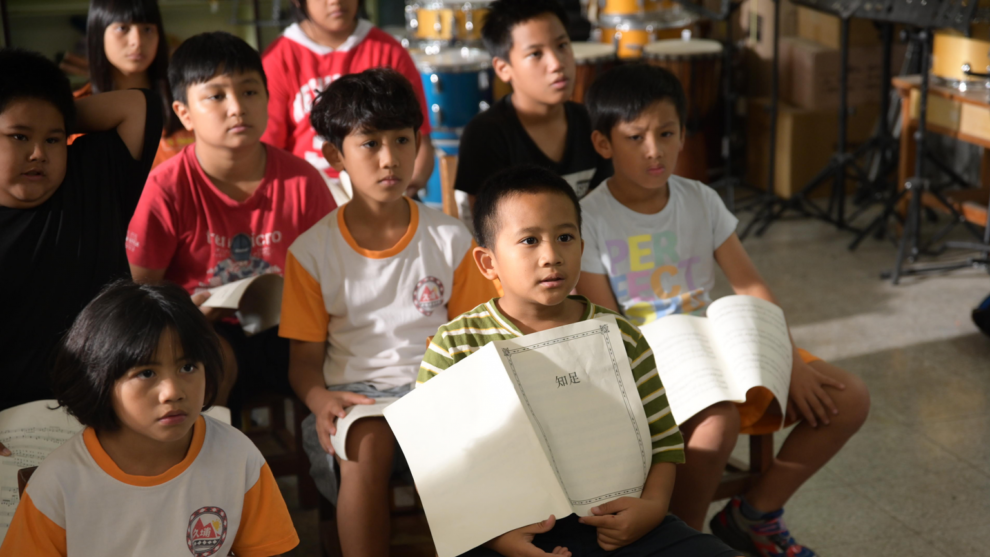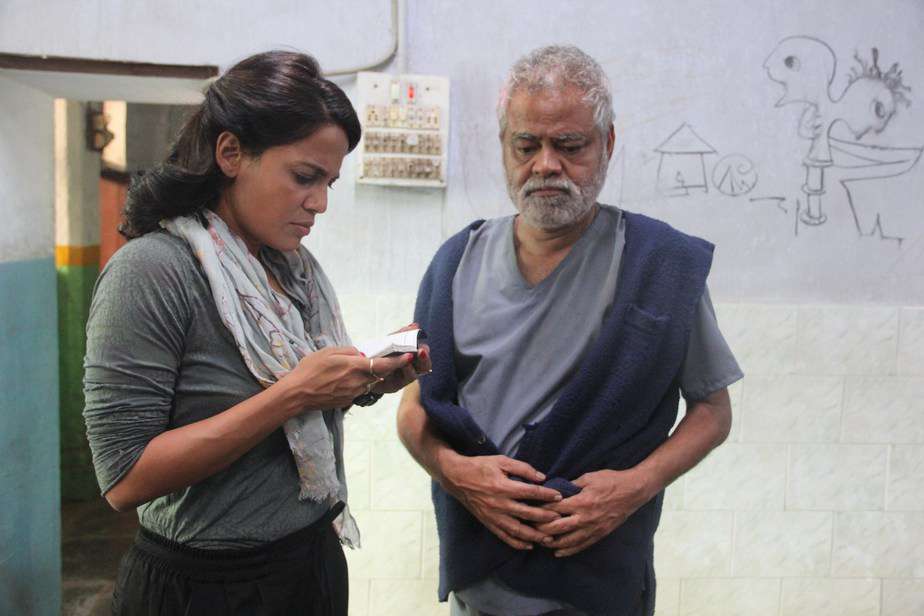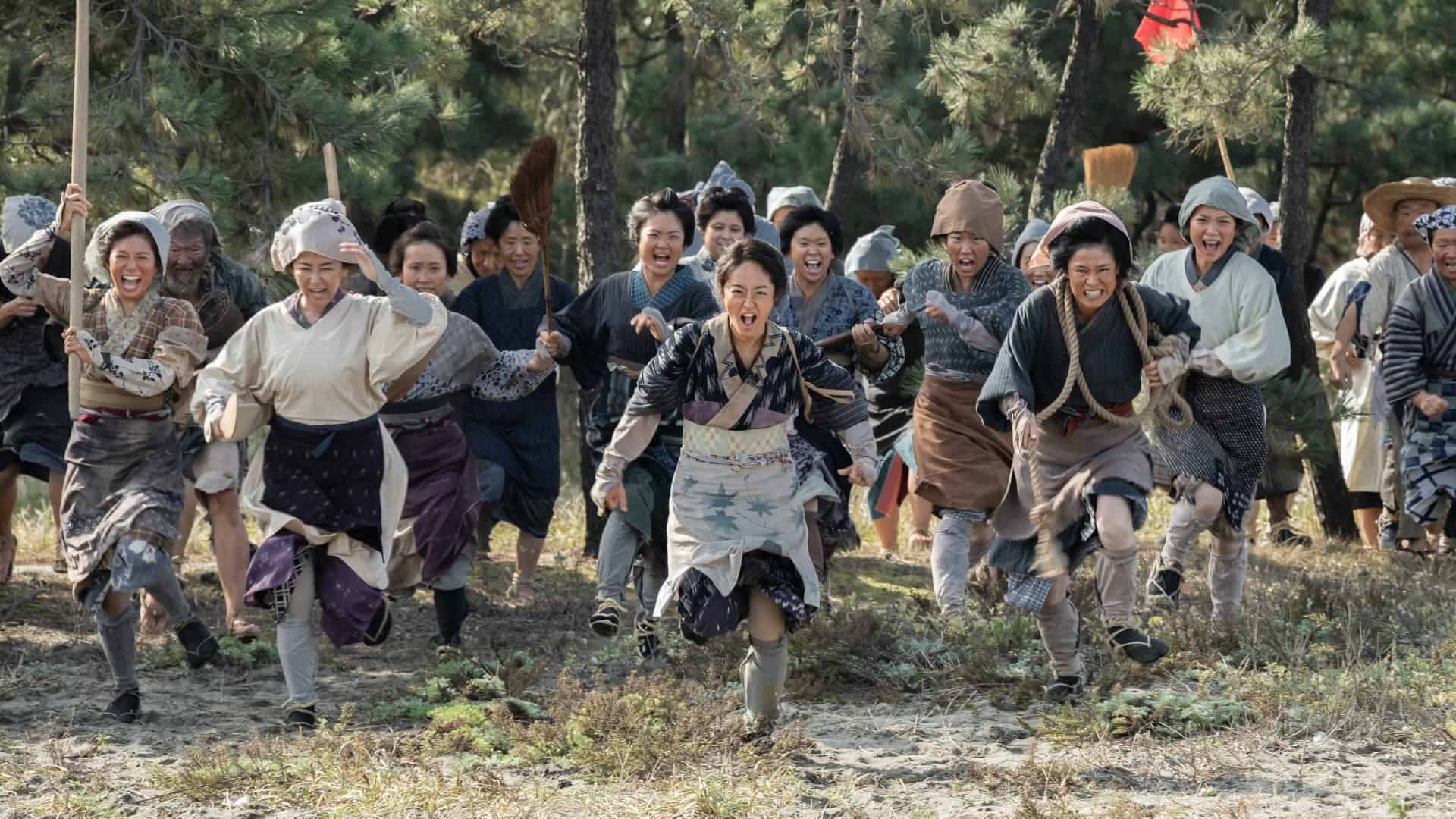Based on the real-life story of Vox Nativa Taiwanese Foundation Choir, “Listen Before You Sing” focuses on the struggles of indigenous people to find their place in an ever-changing world, this time, through music.
“Listen Before You Sing” is screening at San Diego Asian Film Festival

The story takes place in the Taiwanese mountains, where the Bunun people have made their habitat. Local hero Bukut is also the gym teacher at the Jiu Pu Elementary School and a young man who tries to be the mentor of his students, despite the fact that he also has some issues himself, and his efforts frequently end up in blunders that cause laughter to everyone in the school. The real issue however, is that due to the declining population of the area, there is a big possibility for the school to close. The idea the locals come up with is to introduce a local children's choir, which will travel to national competition, thus raising the value of the establishment. Luckily for them, a new music teacher, Miss Huang, has just arrived to teach, while Bukut himself seems to have a past connection with the five notes, although somewhat traumatic, which leads him to become the conductor of the choir. Through hardships and tribulations, the group finally manages to reach a level worthy of a competition, but it is still obvious that something is missing.
Yang Chih-lin directs a film that works on a number of levels. The one that encompasses all others is the presentation of the particular tribe as an archetype for all the issues tribal people face, along with the focus on their culture and the benefits of the close bonds small societies frequently share. In that fashion, the story shows how the constantly changing world is easy to leave indigenous people, who cannot keep up with the speed of the changes, behind, essentially forcing them to extinction. At the same time, and in a rather positive note, it also shows that focusing on their own culture and promoting it may be the way for them to keep on going or even move forward.

The second level focuses on Bukut as an individual, in an aspect that shows how the past, and particularly the inability to deal with it can shape people in the worst way, with his issues eventually causing a problem for both him and the choir. Again in a positive note though, through music and the presence of a mentor, the protagonist finds himself and a purpose in life.
The third one is music itself, with the movie featuring a number of performances, both group and individual ones, which highlight traditional Taiwanese songs, and the particular ones of the tribe, with the focus, expectedly, being on the latter.
Lastly, and in another aspect that encompasses them all, the narrative also works like an episodic comedy, through a number of sequences that are particularly funny. The peeing one in the beginning, the one with the flying squirrel, and a number of others provide much entertainment, also because they are well placed within the narrative, in an aspect that should also be attributed to Hsiao-Tung Chen's editing.
At the same time, however, and particularly on the last three aspects, the film goes a bit too far, essentially lagging for no apparent reason, especially with the comedic episodes, while the continuous presence of choir music definitely demands from the viewer at least some knack for the particular kind. A more economical approach, that would also trim the duration from 113 minutes, would definitely benefit the narrative as a whole.
Umin Boya gives a captivating performance as Bukut in a rather demanding role that also has him experiencing a coming-of-age himself. Pop star Ella Chen as Miss Huang showcases her evident charisma aplenty and is passable in the role, particularly due to a few highlights.
Kwan Pun-leung's cinematography is among the best traits of the film, with him capturing both the rural setting and the venues of the competition and the reaction of the audience with artistry.
Despite some sporadic issues here and there, “Listen Before You Sing” emerges as a movie that manages to highlight its main comment about tribal issues through a rather entertaining approach.














